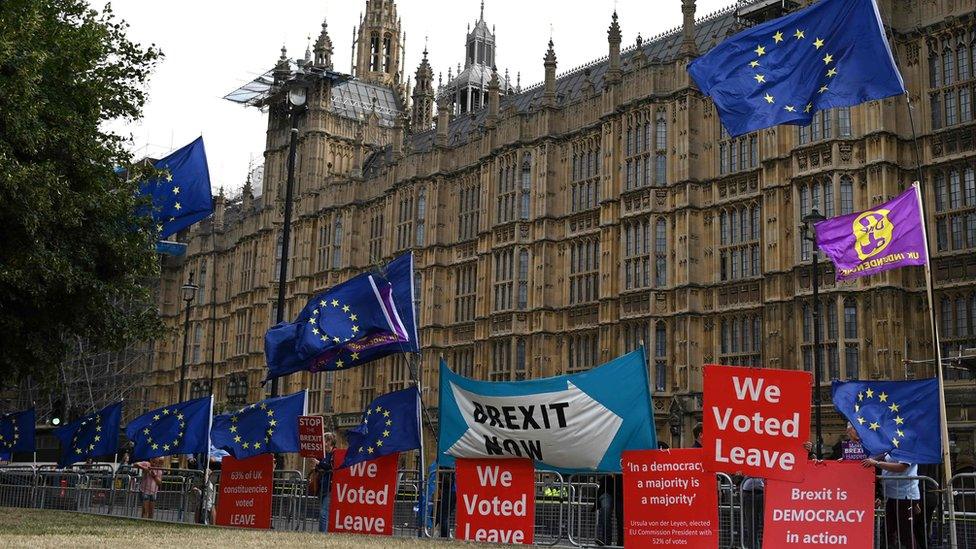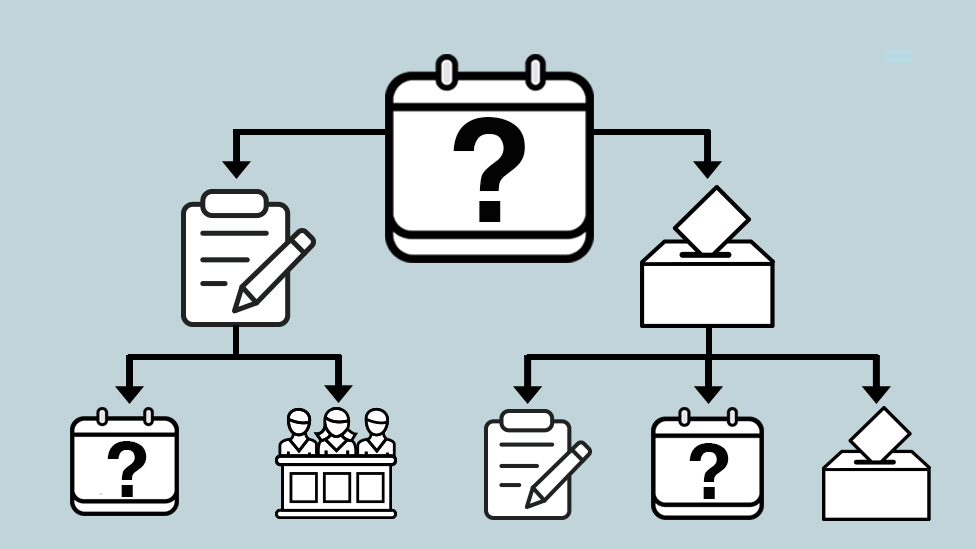Brexit: Parliament's next big drama
- Published

Parliament increasingly resembles an episode of an over-heated soap opera.
You know the kind of thing: two main characters are getting married, the police are about to charge one of them with murder, an ex-lover is deciding whether to speak now or forever hold their peace, there are two serial killers at the reception, and the director keeps cutting to pictures of a leaking gas pipe in the cellar.
So let's try to untangle the conflicting plotlines around the backbench attempt to stop a no-deal Brexit.
The first act should start at around 19.00 BST, after a series of government statements, when the former minister Sir Oliver Letwin, plus a cast of backbench allies including Hilary Benn, the chair of the Brexit select committee, will seek permission to hold an emergency debate.
First, Mr Speaker has to give permission for the application to be considered, hardly a cliff-hanging moment of suspense, and then the House has to signal its consent.
If that is granted (and it just requires MPs to stand up to support the proposal), the Commons will then have three hours to debate the emergency motion.
Normally this kind of motion is a fairly bland statement that the House has considered some pressing matter - but this motion is rather different.
It contains five pages of detailed procedural instructions to ram legislation through the Commons in a single day, and ensure there is the time for the Queen to give her assent, before Parliament could be prorogued - or suspended - next Monday.
It would, of course, only come into play if approved by a majority of MPs, and that vote might have to be preceded by a closure motion - a vote to move to a vote.
Meanwhile in the House of Lords, the Labour Leader Baroness Smith and the Lib Dems' Lord Newby have put down a business motion that would clear the decks for Their Lordships to consider any bill emanating from the Commons, on Thursday and Friday.
But back to the Commons.
The emergency motion sets out a detailed timetable for a bill to stop a no-deal Brexit. It would take priority over all other business on Wednesday, so it would begin after PMQs and any statements - which may well include a statement from the Chancellor, Sajid Javid, on the government's spending review - from 3pm.
At that point, the bill would be presented, probably by Hilary Benn, and MPs would move straight to its second reading, external debate. This would go on until 17.00 BST, after which there would be a Committee of the Whole House, presided over by the senior deputy speaker, Sir Lindsay Hoyle, who would be in charge of selecting any amendments.
The final votes on the bill would be taken at 19.00 BST, and there could be quite a number - for a start, there could be separate votes on each clause and schedule of the bill, and maybe on any amendment or new clause being debated when the music stopped.
The final act would be a vote at third reading, external, which would probably have to be taken with no debate, because time would be running out.
So there are plenty of points at which the gambit could fail. The emergency motion might be defeated, or the second reading might be lost, or some wrecking amendment might be added during the committee stage, or some technical obstacle relating to the need for the Queen's consent might be raised.
And the drama might not end there.
It is entirely possible that the prime minister might respond to a defeat by giving notice of his intention to seek an early election and putting down a motion under the Fixed Term Parliaments Act.
That would need the backing of two thirds of MPs, but it would set off another round of furious politicking…taking us to the next exciting episode.
- Published13 July 2020

- Published3 September 2019

